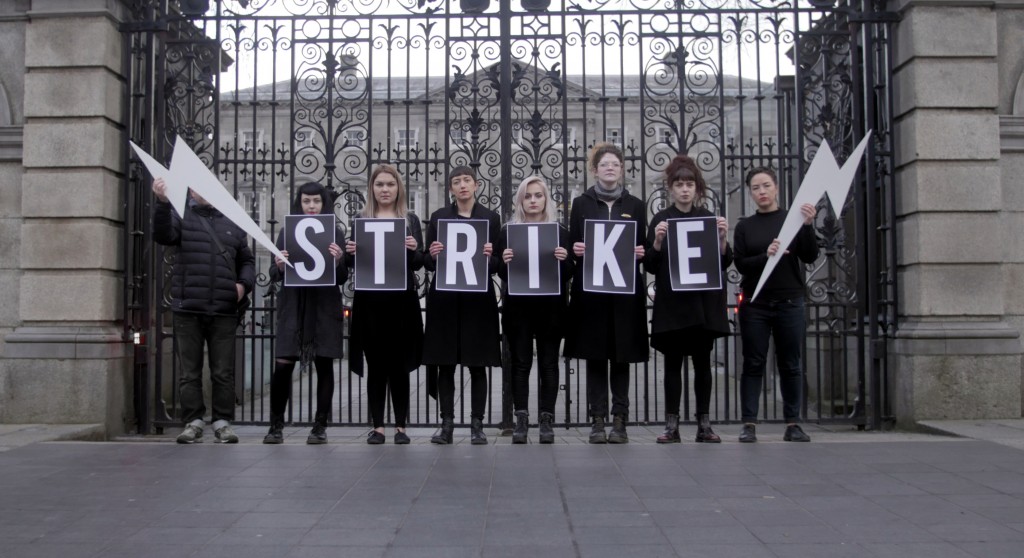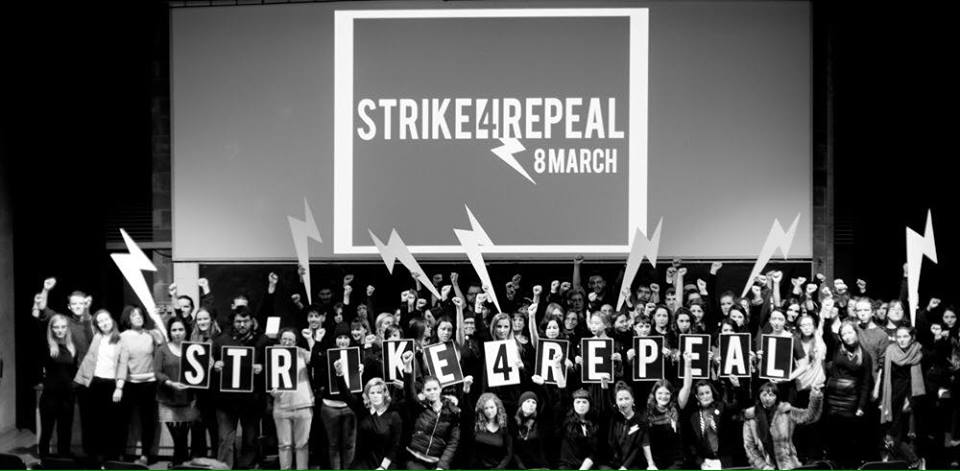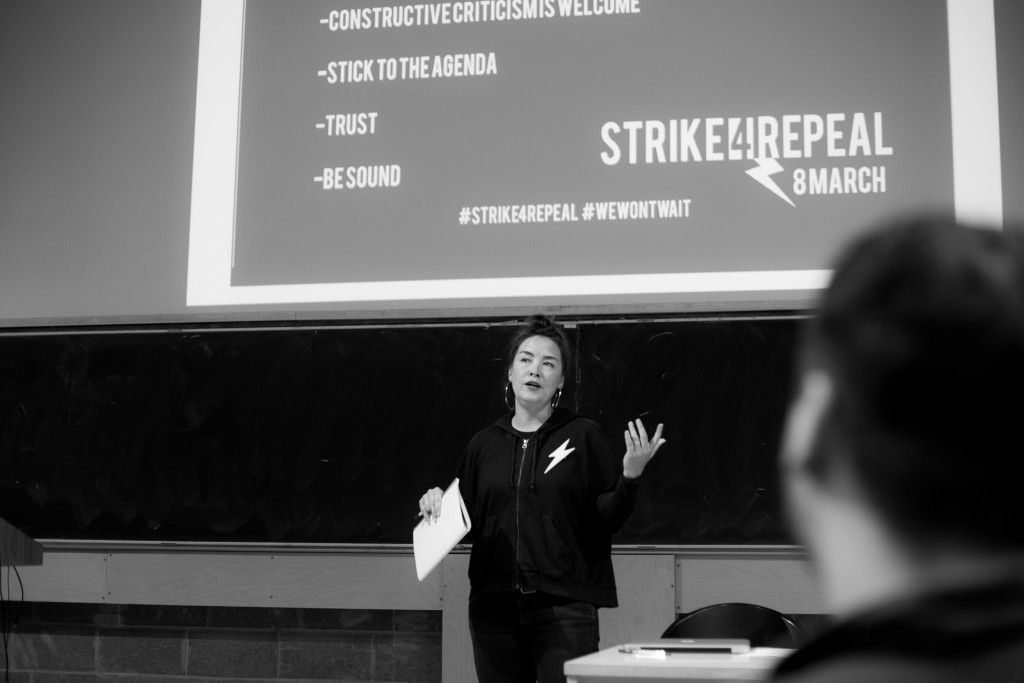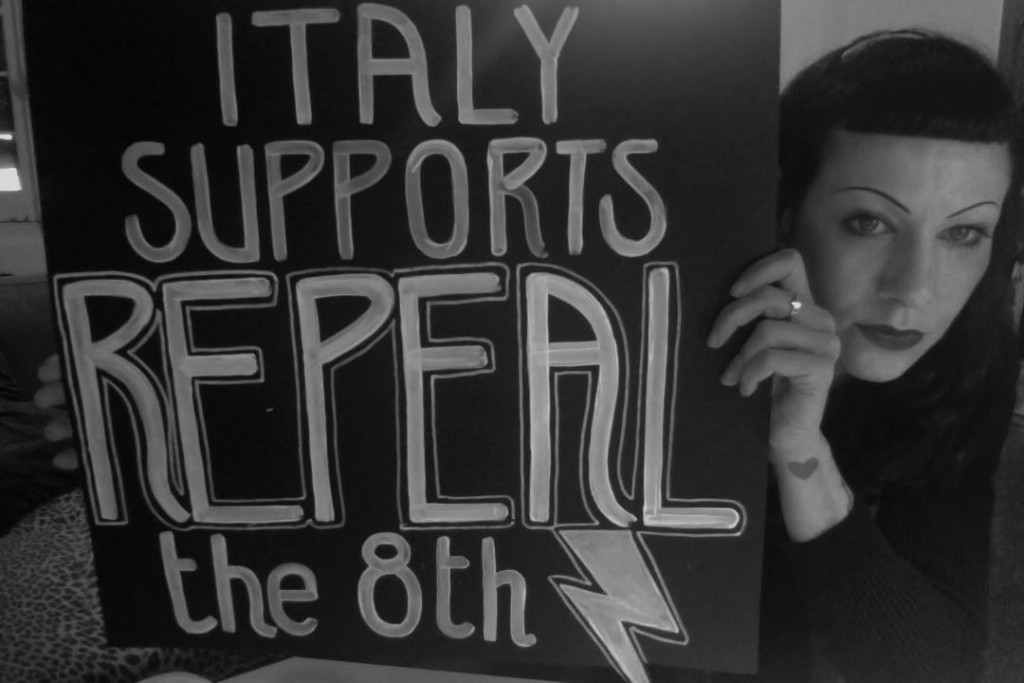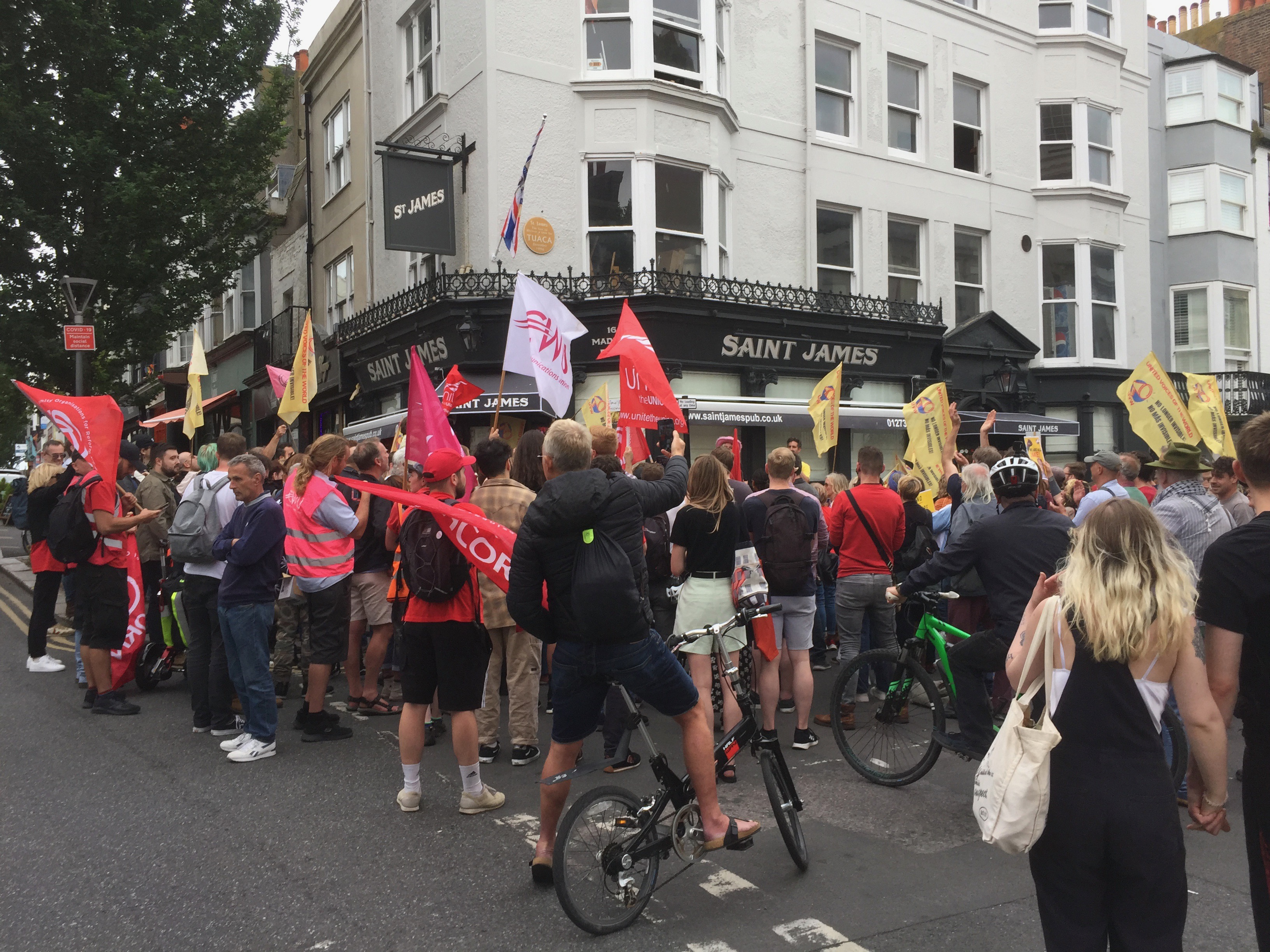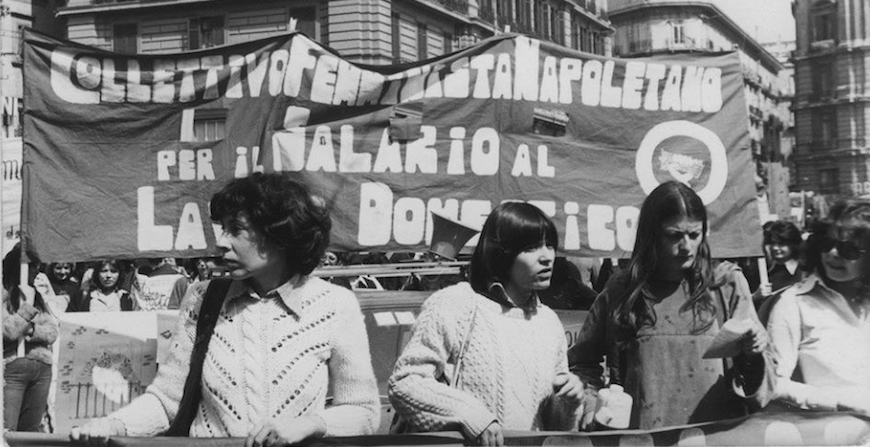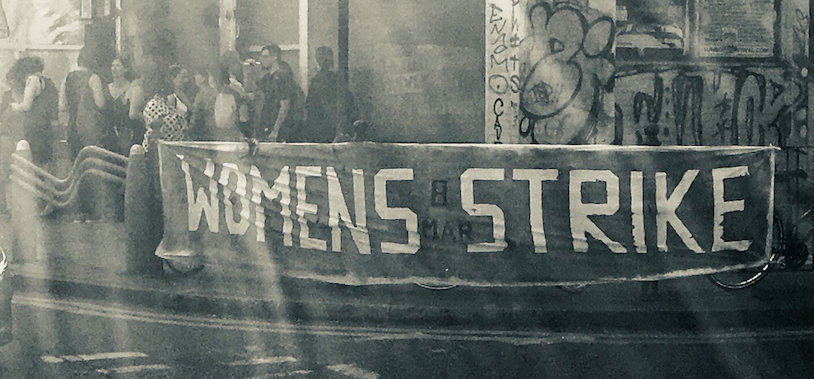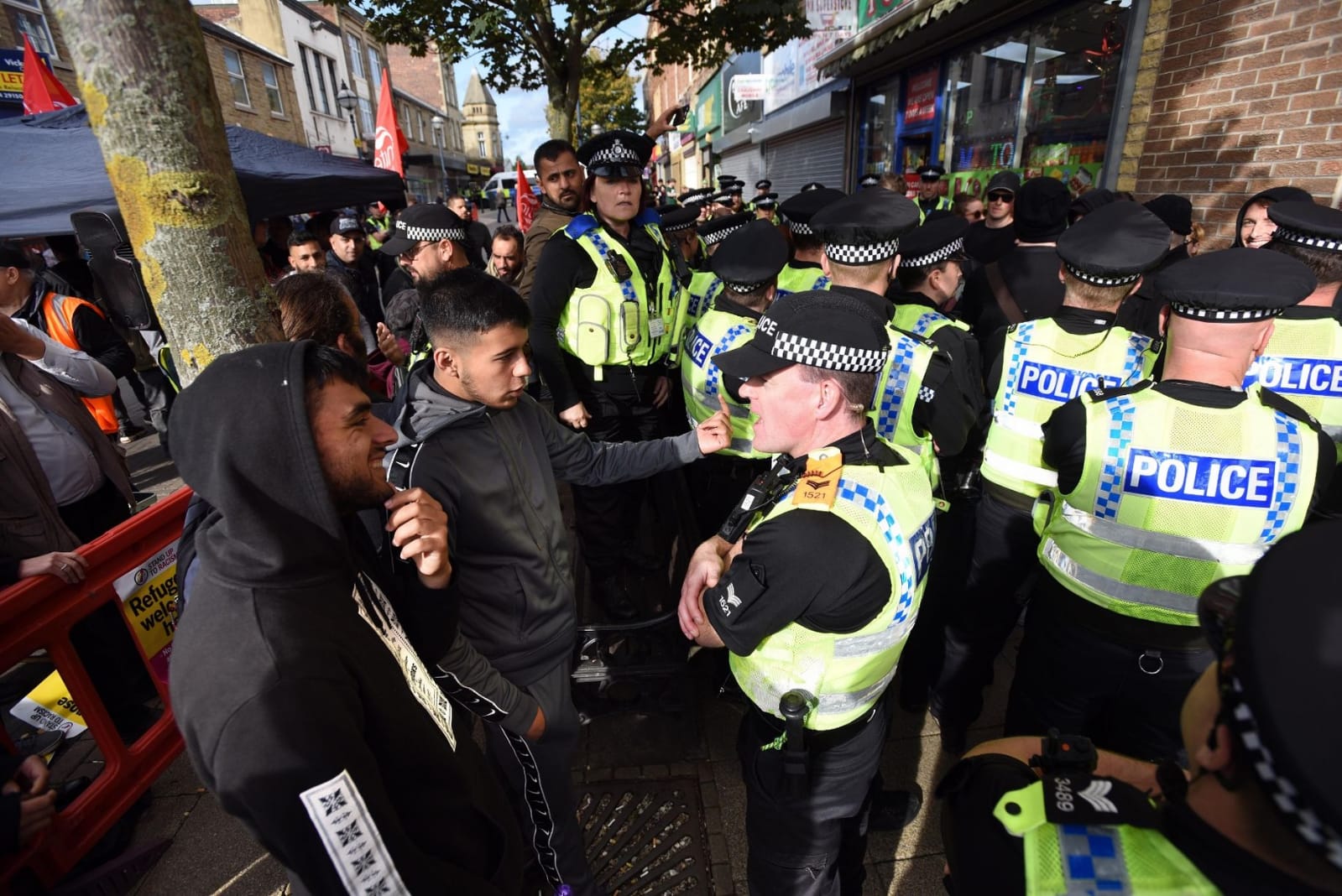As International Women’s day approaches calls for a global women’s strike echo through headlines and social media. Rights that we fought hard to win and considered unassailable seem to be up for discussion. Actions will be taking place in over thirty countries so far; women across the globe are mobilising to take direct action and to go on the offensive against the stark gendered disparities that remain intrinsic in every aspect of existence. Whilst all taking place on the same day, national focus of these actions vary, with strikes targeting – among other things – high rates of sexual violence, outdated abortion laws, and the misogyny of the President of the United States. We have seen worldwide assaults on reproductive justice- including bans, penalties, fines, and even, almost unbelievably, a new law in Arkansas which would give rapists license to sue their victims should they seek an abortion. In the last few months campaigns fighting for women’s rights, and in many places reproductive justice, have been growing in both number and popularity. Over 40 million people participated in the recent Global Women’s marches, Argentinians made headlines worldwide with their cries of ‘Not One Less’ and in Poland over a hundred thousand people took to the streets in a strike that stopped the government in its tracks in its attempts to ban abortions.
On March 8th the Irish campaign group Strike 4 Repeal have called for a national strike in defiance of the government’s draconian anti-abortion laws. They are demanding a referendum to repeal the Eighth Amendment, which prohibits abortion except in the case of a woman’s life being endangered. This is in stark contrast with Ireland’s stance on other forms of reproductive, sexual, and gender based justice; same sex marriage is legal and it is one of the only western countries where it is not complicated to change your gender identity; yet every day women are forced to travel overseas in order to access safe abortions. The majority come to the UK, supported by organisations like the Abortion Support Network, but even this far from ideal option is under attack as Britain’s largest abortion provider, Marie Stopes, announced at the start of this month that they would be turning away Irish women after struggling to meet high demands for their services.
Access to abortion is both necessary and urgent, unsafe alternatives abound and women have died after being refused termination. It is inconceivable that, in terms of abortion law, Ireland remains so far behind England, Scotland and Wales, where abortion has been legal for almost forty years. In defiance and in solidarity, Strike 4 Repeal are urging the people of Ireland to strike, to march, to stage events, to withdraw domestic labour and to wear black. This form of non-traditional strike resonates with Plan C’s organising around the social strike so Kat from Plan C Manchester interviewed them to find out more…
You describe yourselves as an “ad-hoc, non-affiliated group of activists, academics, artists and trade unionists”- how did Strike 4 Repeal form, what was it a result of?
We came together inspired by the Polish strikes last October and out of sheer frustration with the Irish governments’ lack of political will to call a referendum on the 8th Amendment. We are all from various different backgrounds in activism and are non politically affiliated. We’ve found that through our autonomy as a new group which exists purely for the purpose of the Strike on March 8th, that we have the power to make more radical asks of others in the pro choice movement with thanks to the ground work laid down by pro choice groups like the Abortion Rights Campaign.
Could you briefly explain the state of abortion laws in Ireland and what factors may be behind the ban?
We are calling on the Irish Government to call for a referendum on the 8th Amendment which was inserted in the Constitution in 1983 equating the life of a pregnant person with the life of the embryo/foetus. This prohibits abortion, affecting maternal and pregnancy rights. It prevents those carrying a foetus with fatal abnormalities from accessing abortions. It has resulted in the deaths of women in Ireland. It forces 12 people a day to travel overseas,the majority of them from here to the UK or, if they have the means and ability, they face a 14 year jail sentence for importing and taking medical abortion pills in Ireland. A soon as you become pregnant in Ireland, you lose your bodily autonomy.
Calling for a referendum was a redline issue during the general election last year. Despite this and The United Nations calling out the Irish government on a violating human rights, the elected government proceeds to sideline the issue by employing delay tactics.
Coinciding with our inspiration stemming from the Polish Strikes was our disgust with the Government setting up the Citizens Assembly around the same time last year. This Assembly consists of 99 people undemocratically picked to receive information from both sides of the campaign on the 8th and form a report to the government, foregoing the possibility of a referendum until 2018 at the earliest. Further to this, the government isn’t obligated to carry out the recommendations made by the Citizens Assembly. It is a tactic to give the illusion of progress, a hollow pretence enabling the government to side-line responsibility to the health of people living in Ireland. Why ask 99 people when you could ask all of us? We want real progress now. We want a referendum.
Do you think that the religious culture in Ireland will ever be welcoming to abortion as a standard, non-emergency medical procedure or is it better from a tactical point of view to try and advocate for a stronger separation of church and state?
Separation of church and state is a must. Next year Ireland will receive a papal visit where Pope Francis is expected to speak out against abortions, we obviously hope this will not have much sway on the general public. We’ve seen from polls that 80% of the population are for a repeal and we’ve had students attending catholic schools wanting to form actions on the 8th. I think that people are less affected by the word of the church now than they ever have been. Concretely, this was displayed in the landslide victory of the Marriage Equality referendum in 2015 despite the calls from the Catholic Church to vote against it.
As Plan C we organise around and place emphasis on the social strike, which starts with the recognition that production doesn’t just take place on factory lines or shop floors but that labour is intrinsic to every aspect of modern life and as such strikes must take less traditional forms to be effective. We see labour, both waged and unwaged as essential to capitalism. These ideas seem intrinsic to your campaign- what made you decide to opt for a non-traditional strike (as opposed to the more recognisable picket line)?
The campaign to repeal the 8th amendment started on the day the amendment was inserted into the Constitution. Since then, virtually all traditional forms of protest have been employed by the pro-choice side to change the legislation. There have been countless marches doubling in size every year, rallies, lobbying efforts, pressure from international bodies and- probably the biggest pressure- people have died or had serious health consequences due to the ban. Yet, the government refuses to act on the issue, despite polls showing 80% support for repeal. After exhausting all the traditional forms of protest, a radical and non-traditional one like the strike is our only option to escalate our strategies and put political pressure on the government.
We see abortion as a work place issue and so a form of strike action is relevant. We are half the workforce and we, Strike4Repeal, want to make visible the contributions we make to society each and every day, paid or unpaid. Pregnancy has long caused discrimination in work and, once pregnant, we are discriminated against again by a draconian health-care system. Work creates a barrier to accessing abortion as we face trying to secure a sick note for a criminalised medical procedure. This is obscene. Work determines our ability to finance travel, procedures, abortion pills or time off. We strike for repeal in solidarity with the 12 a day who travel and the thousands who order the abortion pills online every year in Ireland. The specific call to remove or interrupt our labour is particularly powerful because it mirrors the physical embodiment of what our body’s experience – work, sex, reproduction, violence – and it makes a direct intervention into capitalism.
Strike 4 Repeal recognises domestic work waged, unwaged, legal and illegal as contributing everyday to a state which doesn’t provide reproductive healthcare. We aim to be inclusive of all forms of labour, including education systems where students are taught or trained to partake and provide in the future for an increasingly neoliberal society. We have the support of organisations that represent illegal work such as Sex Workers Alliance and we strike for asylum seekers who not only cannot work but cannot leave Ireland to access abortions elsewhere.
You’ve said before that you were inspired by the Polish women’s strike of last year and the movement has echoes of the 1975 Icelandic women’s strike, what influence have these actions and those similar had on yours?
Learning from women’s movements abroad such as the Icelandic and Polish strikes, has been of huge influence for us. They have made us confident that a strike is not only feasible, but can create sufficient pressure on the government to act. In particular the Polish strike has shown us how mobilisation can happen through decentralising and building from the ground level up nationally, rather than what is often the case where the capital city becomes the central space for protests. We have now groups mushrooming all over Ireland and have seen great initiatives in colleges and secondary schools. Those are often individuals not previously involved in activism, so the strike provides a great opportunity to activate and radicalise.
Wearing black and blacking out monuments on the 8th is also for us a visual nod in appreciation and inspiration of the Polish strikes.
Is there much trade union involvement with the strike?
In 1990 the Industrial Relations Act was passed limiting that trade unions cannot organise strikes unless they are specifically industrial disputes. However a number of trade unionists are working with us at an individual capacity.
Do you think the strike will intersect with or have an effect on other movements or political issues in Ireland?
We endeavour that forms of direct action and social strike will mobilise people living in Ireland to radicalise and be engaged in all other forms of actions which seek to make conditions better for those who are marginalised. It would be phenomenal for Strike 4 Repeal to have an affect which positively contributes to movements to end Direct Provision, to support trans equality and to legalise and support sex workers and their rights in Ireland for example.
What social, political and economic outcomes do you hope to see on the day itself?
For people to join us on the streets in their thousands, for this to be global. We want the strike to accelerate forms of direct action and ramp up participation and discourse towards achieving a repeal of the 8th. For Strike 4 Repeal to pressurise the government to finally take responsibilities for the violation of our rights to bodily autonomy.
There has been wide coverage of the movement, with articles from as far afield as Iraqi Kurdistan. What are your views on the effect and use of social media on mobilisation?
The reaction we’ve received has been outstanding. We’ve received solidarity from groups all over the world and this has been of consistent motivation for us. The international coverage is key to help us as the Irish government often need to be humiliated in order to act.
What happens after March 8th?
After March 8th we anticipate that the energy and appetite for a referendum will be recognised and will force the government to call a referendum. I hope that it results in a further mobilisation of people for the Pro-choice movement and opens up more room for other forms of direct action and social strikes. We’ve had a huge response from people who have not previously been involved in Pro-Choice activism before, we will encourage them to join other Pro-Choice groups after the 8th to keep up pressure and momentum.
After the women’s marches (which happened worldwide in over 60 countries) there is a wave of newly politicised people and women’s strikes are planned worldwide for march 8th. How do you tie in with the other strikes?
We’ve been in contact with other Global Womens’ Strikes and marches planned for the 8th and have international solidarity actions being planned by Repeal Global. Most recently we were involved in a workshop at Plan C’s Transnational Social Strike conference with the women’s strike movements and got to strategise and share perspectives from our various different circumstances.
There’s been a remarkable amount of energy created with inspiration drawn from other movements both active presently and historically. We’re learning from each other at a transnational level. It feels like the more the right pulls on us, assaulting and revoking our rights, the necessity to react and form alliances is becoming more evident and is being acted upon. There is anger, frustration and an unwillingness to stand down which is making forms of direct action be seen at a increasingly more mainstream level as the legitimate and appropriate response. We’re many and are growing at a global level.
You can contact Strike 4 Repeal and join the strike through their website or Facebook:
http://strike4repeal.org/
https://www.facebook.com/strike4repeal/
–
You can contact Repeal Global for international solidarity events and strikes being organised.
Some confirmed actions are in Glasgow, Manchester, Oxford, Cambridge, Berlin, New York with more in the works for London and France.
https://www.facebook.com/groups/1060283154085871/ 